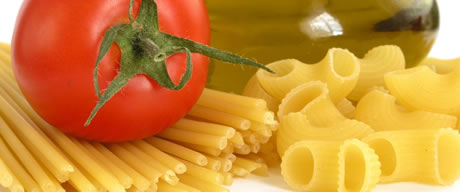Mediterranean Diet – Healthy Eating Habits


Recent news that eating a Mediterranean diet during pregnancy might ward off childhood allergies and asthma just adds to the list of studies suggesting this style of eating has a lot to offer.
Living longer, lower risks of heart disease, cancer, diabetes and possibly birth defects have all been linked to eating a Mediterranean Diet.
But is it easy to follow, especially given that the traditional way of eating in many Mediterranean countries – like everywhere else – is now under threat from faster lifestyles and faster more refined foods? Yes, says Dr Antigone Kouris, a Melbourne-based dietician and nutrition research fellow with Monash University, whose own background is Greek.
While she’s the first to agree that the traditional diet back in Greece is becoming more westernised, she believes that many principles of a Mediterranean diet can be easily adopted in Australia. Here are some good habits to borrow.
- Eat legumes. They’re common throughout Mediterranean countries and in a traditional Greek diet are eaten twice a week to avoid eating meat for religious reasons, says Kouris, herself part of a research team at Monash University that found legumes to be the most important food contributing to longevity in over 1000 elderly people in five countries.
- Eat lots of dark green leafy vegetables like spinach, rocket, endive, chicory and amaranth (excellent sources of magnesium and plant omega- 3 fats, she says). You’ll sometimes find amaranth – often called Chinese spinach – displayed with Asian veg in some greengrocers.
- Eat a range of coloured vegetables including tomatoes and capsicum – they’re high in antioxidants, including lycopene.
- Use extra virgin olive oil. There’s some evidence, says Kouris, that olive oil, like omega-3 fats, don’t seem to add weight around the waist as much as animal fats and processed (hydrogenated) vegetable fats that are high in saturated and trans fats.
- Include some fermented foods like yoghurt or fetta cheese that may help provide gut-friendly bacteria.
- Slow cook meats with vegetables, including tomato, garlic, onion and olive oil. This slow cooking of meat is less likely than grilling to form carcinogens, she says. Stewing also retains nutrients in vegetables.
- Eat fish and seafood. Traditionally, fish is eaten more often than animal meats, she says.
- Be generous with herbs like oregano, rosemary, dill and mint; they make vegetables taste great so you want to eat more of them. Indeed, “you don’t hear Greeks saying they hate vegetables,” says Kouris.
- Snack on nuts and seeds. Traditional snacks include pumpkin seeds, roasted chickpeas, almonds, walnuts, as well as dried and fresh fruit.
- Think outside the salad dressing and use vinegar as flavouring for other dishes. Besides adding a tangy flavour, says Kouris, it also lowers the GI (Glycemic Index) of foods and helps you absorb more iron.
Author: Paula Goodyer




